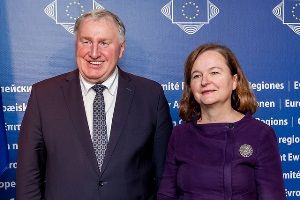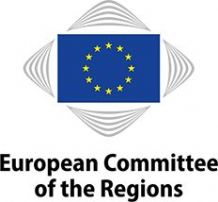President Lambertz' Statement on Europe Day: Building the EU from the ground up with its regions and cities

When national leaders sit together later today in Sibiu, they need to offer more than just symbolic words of European solidarity. They need to be vocal that populist-led Euroscepticism offer no credible answers to the challenge of globalisation, the environmental crisis or inequality. They must lay out a vision for a more cohesive, democratic, fairer and sustainable future, acknowledging that only by working together, with its regions and cities, can the European Union deliver.
What is at stake is a European model that combines social security, solidarity and shared values of freedom, democracy and rule of law. Regions and cities - each of our communities - are a central pillar of European democracy. All levels of government - EU, national, local and regional - have a shared responsibility to uphold these founding values. Empowering Europe's one million local and regional leaders is a means to protecting the European Union.
Moreover despite record highs of employment, regional disparities exist, youth unemployment in many countries is unacceptably high, and too many people are struggling to make ends meet. The social dimension of the EU should therefore be strengthened putting social rights on par with economic rights. The EU is more than just a market. Whether it be youth unemployment or integrating migrants, regions and cities are on the frontline. Our Committee's Integration initiative is one example that whilst national governments fight over migrant numbers, regions and cities are guided by openness and pragmatism.
Our world is warming, biodiversity degrading and without urgent action, the impact immeasurable. Some member states are proposing that the EU becomes carbon-neutral by 2050, something our Committee have been calling for since 2015. We only need to look to the EU's Covenant of Mayors where over 7,500 local and regional authorities voluntarily agreed to surpass the EU's climate and energy targets, to demonstrate that local ambition is driving the global climate agenda. The climate crisis will only be overcome by working as a Union, investing locally, to ensure all regions to make the transition.
The European Union needs its regions and cities as much as regions and cities need more European integration. No ambition can be reached without ambitious resources. Member States must provide an EU budget equal to 1.3% of the EU's Gross National Income. It must focus this investment on tackling economic, social and territorial inequality, whilst supporting an ecologically just transition. The main tool to achieving this is cohesion policy which is the only EU policy managed in partnership between all level of government that is responsive to the specific needs of each community. Without cohesion we will have no Union. This is why our Committee launched the #CohesionAlliance - supported today by more than 12,000 supporters covering 97% of the EU population - which demands cohesion policy to be one third of the next EU budget for all regions.
The last stone to building a more integrated and effective Europe is to set up a "new way of working" giving regions and cities a stronger role throughout the decision-making process. It is all about ensuring closer proximity to people. This needs to be complemented by increasing the democratic participation of citizens within the EU through a permanent system of citizens' dialogue.
For the EU to show unity and be more responsive to the need of its citizens, it needs its regions and cities. As citizens go to vote to decide the kind of Europe they want, we must offer more than words but a new vision that transforms the way it works, giving a greater voice so its regions and cities can deliver. Its future, our children's future, that is at stake.

Contacts
Nathalie Vandelle (FR, EN)
Tel. +32 2 282 2499
nathalie.vandelle@cor.europa.eu
